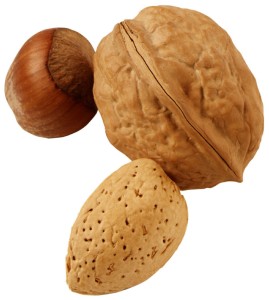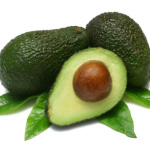This week, read about the importance of omega-3 fats from plants (ALA), fasted cardio workouts to burn fat, cold remedies that don’t work, and more.
Importance of Omega-3 Fats from Plants

A growing body of research points to the critical importance of polyunsaturated fats, in particular omega-3 fats. These polyunsaturated fats are called “essential,” because our bodies cannot make them, so we must get these fats from our diet. The omega-3 fats come mainly from fish and seafood, and some plant sources. The focus of much of the research has been on marine sources of omega-3 fats (EPA and DHA). The benefits on heart health are so convincing that some organizations (e.g., the American Heart Association) recommend consuming fish 2 or 3 times a week.
But new research is revealing the importance of plant sources of omega-3 fats (the main plant-based omega-3 is α-linolenic acid – ALA). Researchers at Penn State University reviewed the literature on omega- fats, and concluded that plant-based omega 3’s are likely just as effective in preventing cardiovascular disease as the marine sources (EPA and DHA). The authors recommend amending dietary recommendations to increase the amount of plant-based omega-3 fats. As most of the research has been conducted using marine-based omega-3 fats, more rigorous research is needed on ALA. (Advances in Nutrition: An International Review Journal, 2014; 5 (6): 863S).
What are the best plant sources of omega-3 fats?
You’ll find omega-3 fats in flax seeds (you must grind them first), walnuts, chia seeds and hemp seeds. ALA is also found is varying amounts in canola oil, wheat germ, soybeans, some nuts, pumpkin seeds, and in some green vegetables (e.g., Brussels sprouts, kale, spinach, and salad greens; but since vegetables contain little fat they don’t contribute much ALA to the diet).
Other links of interest this week:
- Best Nutrition Books of the Year. Monica Reinagel (aka the Nutrition Diva) is an excellent resource for evidence-based nutrition information – this looks like a great list.
- The Ingredient to Avoid in Soap. Avoid the antimicrobial triclosan – regular soap will do the job! (The Atlantic)
- Will you burn more fat if you exercise without eating breakfast? Some athletes incorporate fasted workouts into their training (i.e. training in the morning without eating breakfast) to burn more fat; the rationale is that low glycogen levels cause your body to burn more fat for energy. There is not a lot of good research to back up this trend, and this recent study shows no difference in body composition between fasted and non-fasted workouts. Here are some worthwhile take home points from Brad Schoenfeld, one of the study’s authors. (Journal of the International Society of Sports Nutrition 2014, 11:54 )
- Have a cold? Don’t waste your money on these remedies: The Top 5 Cold Remedies That Do Not Work. (Steven Salzberg, Forbes).
- Evidence for looking moody on the startline – subliminal priming with pictures of sad faces reduces performance. More research showing how your brain and perceptions influences endurance performance. (Frontiers in Human Neuroscience)
 What 200 Calories of Food Looks Like. You’ll find some good visuals in this article. But although calories are important, it’s critical to consider the nutrients in food (for example, although avocados are high in calories, they offer important nutrients). (The Atlantic)
What 200 Calories of Food Looks Like. You’ll find some good visuals in this article. But although calories are important, it’s critical to consider the nutrients in food (for example, although avocados are high in calories, they offer important nutrients). (The Atlantic)- Survey reveals most gluten-avoiders have a false impression of the generally harmless protein. Celiac specialist comments that most gluten-avoiders are not healthier for avoiding the protein. (TIME survey conducted by My Fitness Pal)
- Ice baths after exercise have a strong placebo effect. Although many athletes incorporate ice baths into their recovery routines, the benefit may be more in their head than in the cold water. (Med Sci Sports Exerc. 2014 Nov;46(11):2139-47).
- How weather affects activity: the fitness tracker Jawbone finds its users don’t move much when it’s too warm or too cold. Seems like many winter sports enthusiasts don’t use the this fitness tracker! (The Atlantic)
See More Issues of This Week in Food, Health, and Fitness
Share This: